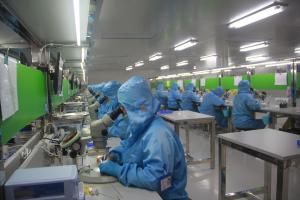Marc Beardslee Discusses The Five Kinds of Continuous Training Pharmaceutical Sales Reps Really Need
Marc Beardslee discussed the five kinds of continuous training pharmaceutical sales reps really need
SUSSEX,, NJ, USA, November 22, 2021 /EINPresswire.com/ -- Selling is a dynamic profession says Marc Beardslee. Successful salespeople must constantly upgrade their knowledge of their company's products, services, and current marketplace conditions as well as their skills in delivering that information to stay successful.But the task of the pharmaceutical salespeople can be tougher than it is for their counterparts in other industries. After all, the prospect of the pharmaceutical salesperson is a physician, who is more knowledgeable than the salesperson about the disease state and therapeutic class of the medicine. But on the subject of their company's products, pharmaceutical salespeople have to be more knowledgeable than doctors themselves.
How is that possible? From over 20 years of pharmaceutical sales leadership experience, Marc Beardslee says there are five kinds of continuous training every pharmaceutical sales professional needs.
Pharmaceutical salespeople have to be superbly educated on the basic facts of anatomy and physiology as it pertains to their products. They need to know what the body's systems and organs do, and what happens when they don't function as they should. They need to be well versed in the terminology of anatomy and physiology so they can understand and be understood during in-depth discussions with physicians without making mistakes....ever.
Pharmaceutical salespeople need to have in-depth training on the disease states their company's products are indicated for. They need to fully understand the important safety information associated with the treatments they sell such as the indication, the dosage and administration, the warnings and precautions, the side effects, the contraindications, the clinical outcomes, the pharmacokinetics, the drug interactions, and how the medication is supplied and others. They also need to be able to compare their products to other treatment options in the class in terms of product-related features and benefits, potential efficacy differences, and potential differences in patient out-of-pocket costs.
Pharmaceutical salespeople need to understand the business of medical practice. They also need to understand the kinds of challenges offices may have to deal with when trying to prescribe certain medications and how those challenges can lead to additional, time-consuming work as well as their impact on patient satisfaction and patient retention. The salesperson needs to engage in the total office call and work with all nurses, medical assistants, billing personnel, and secondary prescribers like Nurse Practitioners, Physician Assistants, and Midwives to ensure they have all of the tools and information they need to overcome any challenges they may have when prescribing their products.
Pharmaceutical salespeople need to have a deep understanding of the complex managed care environment in which they sell. A healthcare provider's choice of treatment can be influenced by its degree of health insurance coverage. Therefore, salespeople need to be able to communicate up-to-date information on the status of their products on all relevant commercial and government-sponsored health insurance drug formularies.
Pharmaceutical salespeople need to be constantly improving their selling and territory management skills, their soft skills, and their ability to leverage all company provided resources and tools to help drive their business.
Training great salespeople never ends. Continuous reinforcement and improvement of essential knowledge and winning sales techniques, Marc Beardslee says, creates the salespeople that become trusted assets to the medical community which results in true partnerships and leads to the increased market-share and revenues that helps build great companies.
Caroline Hunter
Web Presence, LLC
email us here

